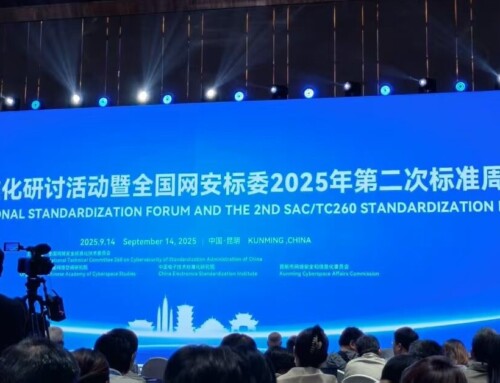On March 5, 2025, during the “Two Sessions,” Premier Li Qiang delivered the 2025 Government Work Report to the National People’s Congress, in which the term “standards” appeared eight times (directly related to standardization work), an increase of three mentions compared to the 2024 report. This reflects a rising emphasis on standardization in the top-level policy agenda.
Below is a comparison of standardization-related content in the two reports:
| No. | 2025 version |
2024 version |
| 1 | – formulate and revise mandatory national standards for environmental protection, safety, etc. | |
| 2 | – adapt to people’s needs for high-quality housing by improving standards and norms to promote the construction of safe, comfortable, green, and smart “good houses.” | |
| 3 | – strengthen the standardized construction of compulsory education schools to promote high-quality, balanced development of compulsory education. | |
| 4 | – launch a standards upgrade initiative to guide the optimization and upgrading of traditional industries. | – implement a standards enhancement initiative, accelerate the establishment of a standard system that meets high-quality development requirements, and continuously improve the quality of goods and services to better meet people’s needs for an improved life. |
| 5 | – strengthen standardization leadership and quality support to create more internationally influential “made in china” brands. | |
| 6 | – improve policies and standard systems that support green and low-carbon development, fostering a healthy development ecosystem for green and low-carbon industries. | |
| 7 | – improve the standard systems and fundamental frameworks for technology finance, green finance, inclusive finance, pension finance, and digital finance. | |
| 8 | – practically ensure equal treatment for foreign enterprises in areas such as factor acquisition, qualification licensing, standard setting, and government procurement. | – ensure equal participation in government procurement, bidding, and standard setting in accordance with the law and promote solutions for cross-border data flow issues. |
| 9 | – support the integration of domestic and foreign trade, accelerating the resolution of issues related to standards certification and market channels. | – actively align with high-standard international economic and trade rules, steadily expand institutional opening-up, enhance the synergy between domestic and international markets and resources, consolidate the fundamentals of foreign trade and foreign investment, and cultivate new advantages in international economic cooperation and competition. |
| 10 | – formulate guidelines for the establishment of a unified national market. |
SESEC Observations:
- Increased Focus on Standards for Livelihood Issues
This year’s Government Work Report places greater emphasis on standardization efforts in areas directly related to people’s well-being, such as housing, education, and environmental protection. This suggests the government aims to expand the role of standards in improving public welfare.
- Stronger Commitment to Foreign Enterprise Participation
The phrasing regarding foreign enterprises’ equal participation in standardization, bidding, and procurement has shifted from “ensuring by law” to “ensuring in practice”. This change may indicate that more concrete measures will be introduced to facilitate foreign participation.
- A Shift in China’s Trade Policy Approach
Regarding international trade, the report moves from “actively aligning with international rules and cultivating new competitive advantages” to “resolving existing issues related to standard and certification barriers.” This may suggest that China’s stance on global trade has shifted from an aggressive push for integration to a more defensive posture, focusing on addressing current challenges.
Background Information:
The “Two Sessions” refers to the National People’s Congress (NPC) Session and the Chinese People’s Political Consultative Conference (CPPCC) Session, which together constitute one of China’s most significant annual political events, held in early March each year.
The NPC session primarily focuses on reviewing and approving the Government Work Report. This report, delivered by the Premier of the State Council, summarizes the government’s progress over the past year and outlines development goals, directions, and key priorities for the coming year. During the session, the NPC also examines and approves national economic and social development plans, the state budget, and legislative amendments. Additionally, it deliberates and decides on major national matters, including the election of new state leadership.
The CPPCC session focuses on reviewing and approving the work report of its Standing Committee, evaluating the performance of the CPPCC over the past year, and setting tasks for the next phase. It also serves as a platform for submitting proposals and providing policy recommendations on key economic and social issues, as well as public concerns. The CPPCC session facilitates discussions on major national policies, contributing to informed decision-making by incorporating a broad range of public opinions and expert insights. Moreover, it plays a role in refining and advancing policy implementation through in-depth topic discussions.




